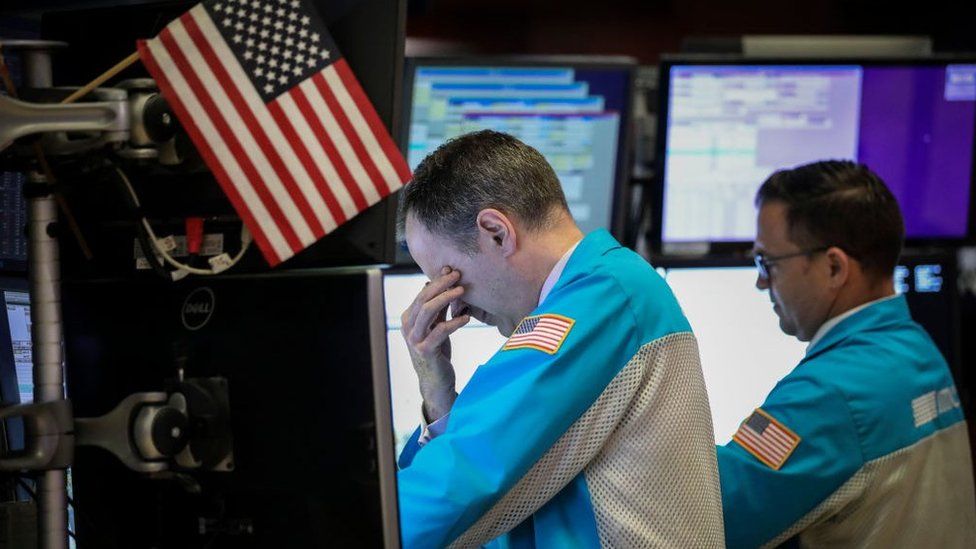Markets dip as US-China trade war spooks investors
- Published

Global markets dipped on Thursday as investors grew concerned about the possibility of a technology cold war between the US and China.
China warned Washington that it needed to "correct" its "wrong actions", after the US put Huawei on a list that curbs the ability of US firms to trade with it.
The tech-heavy Nasdaq was down 1.9%, while the Dow Jones fell by 1.6%.
Asian stocks fell to a four-month low overnight.
And in London, the FTSE 100 closed down 1.4% as worry over Brexit uncertainty in Westminster showed signs of spilling into the City.
On 15 May, the Trump administration added Huawei to its "entity list", which bans the company from acquiring technology from US firms without government approval.
Five days later, Google restricted Huawei's use of the Android operating system, and other US technology firms that supply components to the Chinese firm soon followed suit.
Against that backdrop, technology stocks were some of the hardest hit in Thursday's sell off with the S&P 500's technology index down by more than 2%.
On Thursday, Japan's Panasonic became the latest firm to question whether any of its products break US restrictions on trading with Huawei.
No end in sight
Investors have been wary of a protracted trade war between the US and China, and there seems to be no end in sight.
Analysts at Nomura warned in a note that "without a clear way forward" during the 2020 US presidential elections, there is a risk that tariffs will remain in effect through end 2020.
Richard Dunbar, head of macro investing research at Aberdeen Standard Investments, told the BBC that the dip was a delayed response to the souring trading relationship between the US and China.
He said investors had chosen not to worry too heavily about the trade war until now.
But tensions ratcheted up earlier this month when the US increased tariffs on $200bn (£158bn) worth of Chinese goods - including fish, handbags, clothing and footwear - from 10% to 25%.
"Equities are pricing the risks they see in front of them," said Mr Dunbar, adding that the US-China trade war was correctly priced by the market.
He said some companies were responding to the rising tensions by making permanent changes to their business models, which means the effects of the trade war will be felt long after political pressures ease.
- Published15 May 2019
- Published14 May 2019